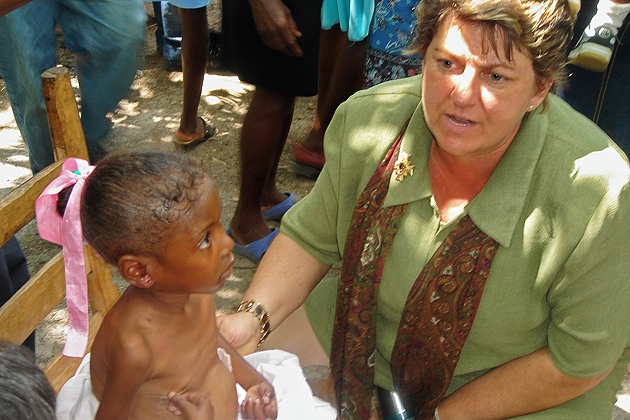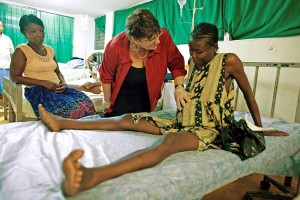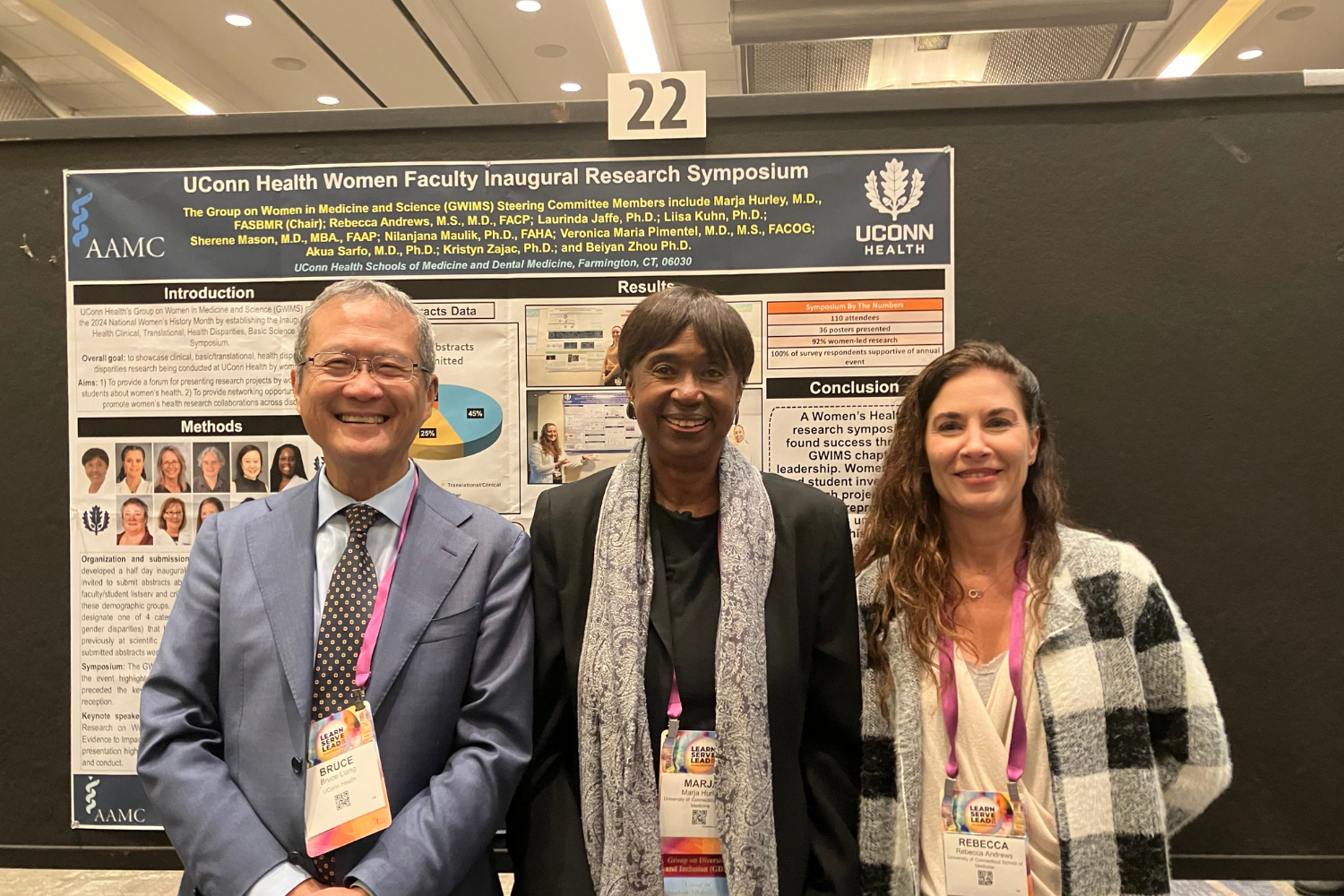
Delivering health care to the more than 100 isolated villages in Haiti’s remote and mountainous Grand’Anse province is a constant challenge.
Yet there, amid the poverty, disease, and political strife, Bette Gebrian ’77 (NUR), ’93 Ph.D. has found her calling.
For almost 25 years, Gebrian has been using the nursing training and expertise she received at UConn to improve the region’s health care system as director of public health for the Haitian Health Foundation (HHF), a Connecticut nonprofit based in Jérémie, the capital city of Grand’Anse.
Since 1982, the HHF has run a clinic and public health, education, and development efforts that have included reducing infant deaths due to pneumonia by 50 percent; constructing a new school and more than 2,600 homes to replace the thatch and mud shacks that many rely on for shelter; and distributing more than 4,500 goats to help support families with an average annual income in U.S. dollars of $300 to $500.
More than 200,000 people depend on the HHF clinic for health care. Gebrian’s responsibilities include delivering and monitoring vaccines to ward off polio, whooping cough, and tetanus. She and her staff also make sure village children receive vitamins to prevent blindness, and that families understand the importance of clean drinking water and oral rehydration treatment for diarrheal diseases.
“Managing public health care in the Third World requires you to use your skills and knowledge to try to save not one, but thousands, of lives,” says Gebrian, who last year received the UConn Alumni Association’s Humanitarian Award. “The impact of public health care is not something you see right away; it’s a process that requires time.”
HHF nurses like Gebrian also provide emergency services, often riding motorcycles to get to distant mountain villages and, when resources are short, using shower curtains as mats and garbage bags as gloves while delivering babies out in the field.
“I’ve never looked at garbage bags the same again,” says Gebrian. “But that’s what nurses do really well. We figure out what’s going on, and we find creative and practical ways to help.”

The HHF balances its emergency relief efforts with teaching and training programs, from getting fathers more involved in child care to educating mothers about proper maternal and neonatal care.
“For the past 25 years, Bette Gebrian has been a positive force in rural Haiti, bringing health care, health education, and the gift of hope to thousands sentenced to a life of poverty,” says Jeremiah Lowney, a Connecticut orthodontist and founder of the HHF.
When she’s not in Jérémie, Gebrian serves as an associate clinical professor for the UConn School of Nursing and for the Department of Community Medicine and Health Care in the UConn School of Medicine. She is also a nursing faculty member at The Johns Hopkins School of Nursing.
“We had the skills and the guts to go out and create something that didn’t exist,” Gebrian says of the HHF’s public health efforts, Jérémie clinic, and other programs. “To those nursing students who are wondering how to apply their education in public health nursing, all I can say is: ‘Take that first step and try. It is a decision you will not regret.’”
For more information, visit haitianhealthfoundation.org.



